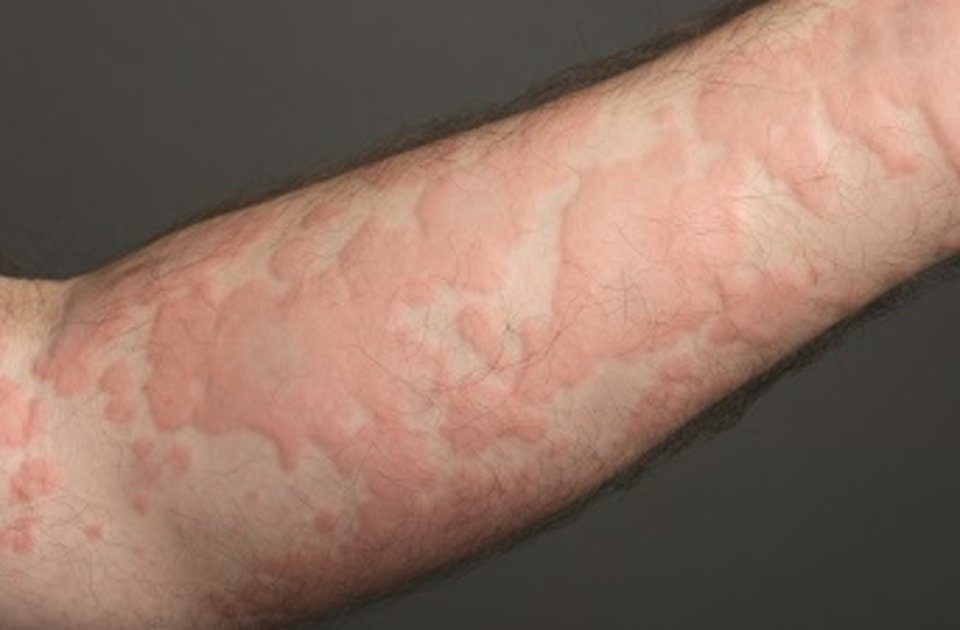
Understanding Urticaria
Types of Urticaria
Urticaria can occur in different forms. Our specialists at Indian Skin, Hair & Aesthetic Skin Clinic accurately classify the type to plan the right treatment.
1. Acute Urticaria
Usually caused by allergic reactions to food, medication, insect bites, or infections. It develops quickly and typically resolves within a few days or weeks.
2. Chronic Urticaria
Lasts for more than six weeks and may not have an identifiable cause. It often requires comprehensive testing and long-term management.
3. Physical Urticaria
Triggered by physical factors such as heat, cold, pressure, vibration, sunlight, or exercise.
4. Autoimmune Urticaria
Occurs when the immune system mistakenly attacks the body’s own tissues, leading to persistent hives.
Common Causes and Triggers
Urticaria can be triggered by a wide range of factors. Understanding these helps in prevention and management.
Allergic reactions: Food items like nuts, shellfish, eggs, or dairy products.
Medications: Antibiotics, painkillers, or anti-inflammatory drugs.
Infections: Viral, bacterial, or fungal infections.
Stress: Emotional or physical stress may trigger or worsen hives.
Temperature changes: Exposure to heat, cold, or sunlight.
Insect bites or stings.
Underlying medical conditions: Thyroid disorders, autoimmune diseases, or liver problems.
At our clinic, we identify possible triggers through a detailed medical history, allergy testing, and lab investigations when needed.
Symptoms of Urticaria
Symptoms can vary from person to person, but the most common signs include:
Raised red or skin-colored welts
Intense itching or burning sensation
Swelling of lips, eyelids, hands, or feet (angioedema)
Rash that appears and disappears within hours
Recurrent flare-ups, especially at night
If you experience difficulty breathing or swelling of the throat, it’s essential to seek immediate medical attention. Our dermatologists are trained to manage both mild and severe allergic reactions safely.
Diagnosis at Indian Skin, Hair & Aesthetic Skin Clinic
A correct diagnosis is the key to effective treatment. Our dermatologists begin with a comprehensive evaluation, including:
Detailed medical history and symptom review
Physical examination of the rash pattern and duration
Allergy tests such as skin prick or patch testing
Blood tests to detect infection or autoimmune markers
Thyroid and liver function tests if chronic urticaria is suspected
Through accurate diagnosis, we can tailor a treatment plan that not only relieves symptoms but also minimizes future flare-ups.
Treatment Options for Urticaria
At Indian Skin, Hair & Aesthetic Skin Clinic, we offer both medical and lifestyle-based treatments designed to bring lasting relief.
1. Antihistamines
Non-sedating antihistamines are the first line of treatment to reduce itching, redness, and swelling. For chronic cases, your dermatologist may adjust the dosage or combine multiple antihistamines for better control.
2. Corticosteroids
Short courses of oral or topical corticosteroids may be prescribed during severe flare-ups to quickly calm inflammation.
3. Immunomodulatory Therapy
For chronic or autoimmune urticaria, advanced options such as omalizumab (anti-IgE therapy) or cyclosporine may be recommended under expert supervision.
4. Lifestyle and Diet Modification
Avoiding known triggers, maintaining a healthy diet, and managing stress can significantly reduce the frequency of urticaria episodes.
5. Advanced Skin Treatments
In some resistant cases, phototherapy and other dermatological procedures may be considered to provide long-term remission.
Our goal is to give every patient symptom-free skin with improved quality of life.
Why Choose Indian Skin, Hair & Aesthetic Skin Clinic?
1. Experienced Dermatologists
Our team is led by qualified and experienced dermatologists who specialize in allergy and skin immunology. We combine clinical expertise with compassionate care.
2. Accurate Diagnosis
We focus on identifying the root cause of urticaria using advanced diagnostic tools, ensuring the treatment targets the source — not just the symptoms.
3. Customized Treatment Plans
Every patient’s skin and condition are unique. Our individualized care plans are designed for effective, safe, and lasting results.
4. Modern Facilities
Our clinic is equipped with state-of-the-art technology and maintains the highest standards of hygiene, comfort, and patient privacy.
5. Holistic Care
Along with medication, we emphasize dietary guidance, stress management, and lifestyle modification for complete healing.
Self-Care Tips for Managing Urticaria
While medical treatment is crucial, certain home and lifestyle practices can help you manage urticaria effectively:
Wear loose, breathable clothing.
Avoid scratching or rubbing affected areas.
Stay hydrated and maintain a balanced diet.
Identify and avoid personal triggers.
Reduce stress through yoga, meditation, or relaxation techniques.
Use dermatologist-approved skincare products to maintain skin health.
If symptoms persist despite these measures, seek professional help. Chronic urticaria requires medical management — not self-medication.
